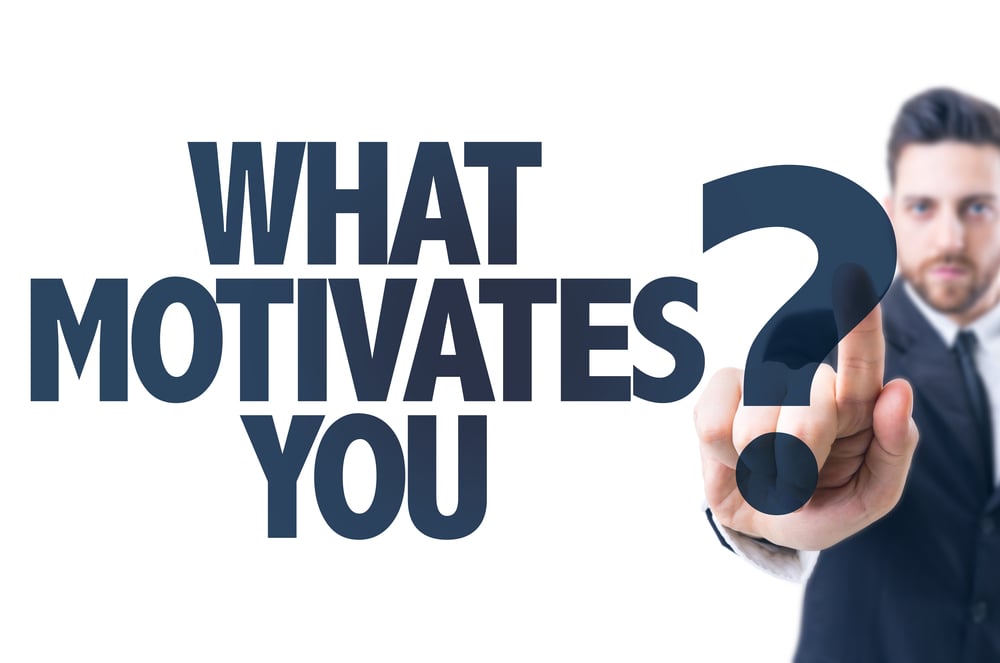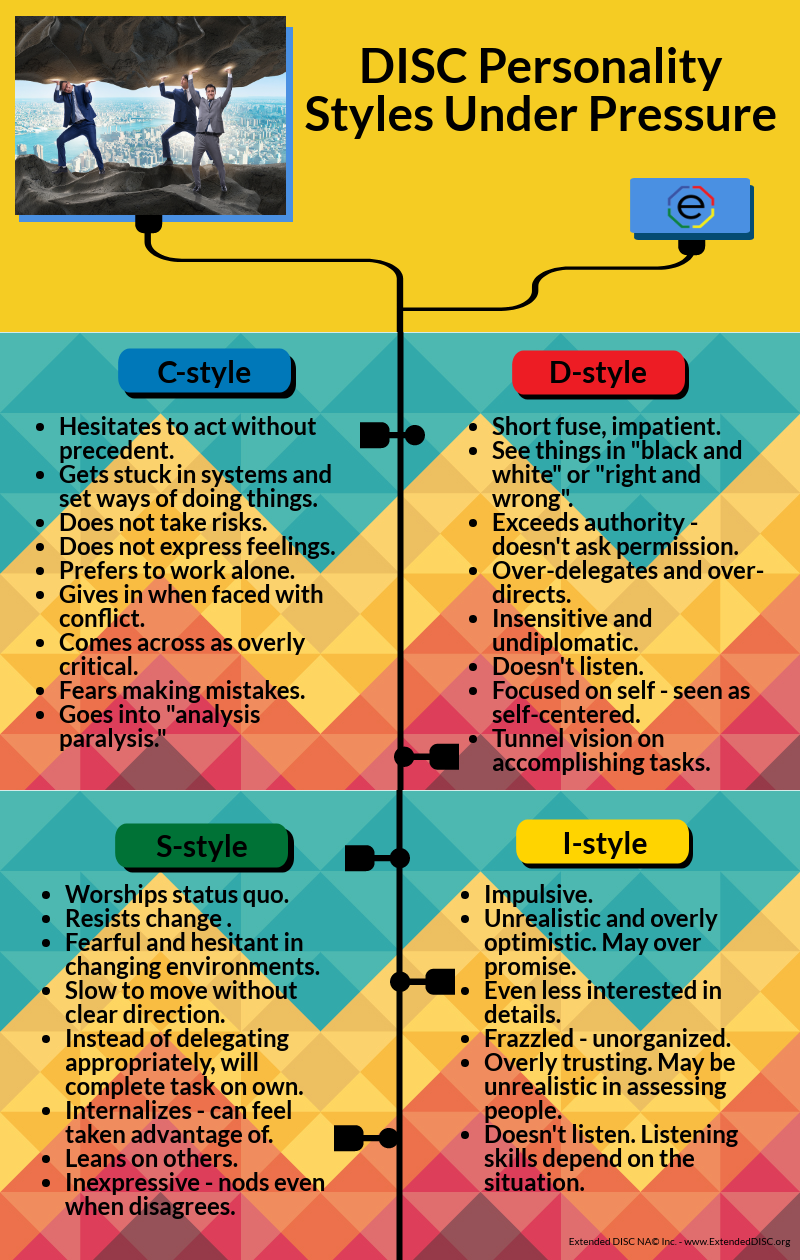A gloomy job market and millions of job seekers…how do you stand out?
In the past year, the unemployment rate has reached historically high numbers. Many of us may find ourselves looking for a new job. Those graduating and entering the workforce, find themselves up against a lot of competition in job seekers. Many are looking to return to work after staying home to raise kids or care for elderly parents. In addition to the higher number of job seekers, there are also fewer jobs available. So, how do you gain a competitive edge?
Know Thyself
Socrates, the famous philosopher, spent much of his time exploring and pondering what it meant to “know thyself“. Well, I’m no philosopher, but I am a Senior Trainer at Extended DISC, NA. Knowing thyself is Step 2 within our 4 Steps to Effective Interactions. Of course we use different language to describe this step, we call it ‘Understanding your DISC style and how others perceive someone with your DISC style’. At Extended DISC we want you to embrace who you are and own your behaviors. I believe, knowing thyself gives you a competitive edge for entering or reentering the job market. This awareness can give you a boost of confidence and a path for success.
So what are you waiting for? It’s time to reacquaint yourself with you. Look within yourself. What lights you up? What turns you off? What do you do well? Where do you have areas to improve? What makes you, you?
Side Story
Back in the day, I hated looking for a new job and interviewing. I didn’t like to talk about myself. It felt awkward. It felt like I was bragging. I dreaded the question: “Tell me about your strengths and weaknesses.” Then, in 1998 it all changed. Now, I enjoy interviewing and the whole job seeking process. What happened? Well, I’m glad you asked. In 1998 I attended a week long leadership training; in which I was introduced to my very first DISC assessment. (Anyone remember the scratch-off versions?) My DISC report gave me a ton of information about myself and the language I needed to communicate my strengths and weaknesses. It’s amazing how knowledge could boost my confidence. My whole perspective on job seeking and interviewing changed from that moment on.
The Extended DISC® report(s) provide you with a wealth of knowledge to get you started. So, let’s take a look at how the report can help you stand out in the job market.

Your Strengths
How well can you talk about your strengths? The Extended DISC® report provides you with a full page all about how you rock it. Use the page to remind yourself of what you do well. Think of a specific example of when you used the strength and there was a successful result. Think outside the box. It doesn’t always have to connect to a project at work. Maybe it’s an example in sports, extra curricular activities, volunteer committees, etc. The main thing is to be specific.
Most people love to hear and talk about what they do well. However, we all have challenges as well. Phase one is having awareness around what you do well. Phase two is being aware of how you use your strengths. Oftentimes, a strength overused, becomes your weakness. At Extended DISC, we call this the “too” effect. Too much of anything is never a good thing. Simply place the word “too” in front of your strengths and it becomes an example of how you may overuse your strengths.
So, if you want to stand out from the competition, be comfortable talking about your challenges as well. Think of a specific example when you overused a strength and it did not have a successful result. But, don’t end your story there. To shine above the rest, include a story about how your awareness has helped you adjust behaviors to prevent unsuccessful outcomes.
Practice telling it like a story and not just answering a question. It’s all about the details. The details provide proof you have done or not done those behaviors. Use the Strengths page in the Extended DISC® report to help jar your memories. Talk about it with a trusted colleague or family member. Or, simply read the page for a boost of confidence!

Who’s Interviewing Who?
Back in the day I used to think I had to “sell” what I could bring to the job and organization. Then, I realized, “wait, this is a 2-way relationship.” I’m interviewing them just as much as they are interviewing me. They need to sell me on what the job and organization can offer. It needs to be a good fit on both ends to make it work.
To ensure a good fit, it helps to know what motivates you and what decreases your motivation. Well, you are in luck. The Extended DISC report has a full page dedicated to situations that motivate you and situations that decrease your motivation. Use these pages as a starting point. Look at the job description for the position you are interested in. Do you see any of your motivators or demotivators listed? Circle the motivators and underline the demotivators. Which has more?
Prepare your own set of questions to ask. Use the motivator page and demotivator page to help you phrase questions to learn about the team, culture of the organization, role and responsibilities of the job position. Make sure the job and organization are a good fit for you.

Calm Amidst The Storm
How do you work under pressure? Another question I used to dread. Everyone experiences stress, pressure, and fatigue at some point in their careers and in their lives. How we respond is what sets us apart from the rest. So, how do you respond to pressure situations?
Yep, you guessed it! The Extended DISC® report has a page for that. Oftentimes, this page is overlooked because people feel the most vulnerable here. Who wants to admit, “Yeah, under pressure I tend not to talk to others. Do you want to hire me?” Well, not when you put it like that.
Understanding how you react to pressure situations can make it easier to deal with them. Again, phase one: awareness. Phase two: action. Awareness allows you to make better choices and decisions. If you were not aware, you wouldn’t do anything differently. So, share a story: “yeah, under pressure I noticed I tend not to talk to others. So, when I start feeling stress or pressure, I put an hourly reminder in my calendar to get up and talk with others; share information. Would you like to hire me now?”
.png)
Practice What You Preach
Apply DISC. DISC is more than a self-awareness and communication tool. Remember, knowing thyself is only 1 step within our 4 Steps to Effective Interactions. Our ultimate goal is applying what we know about DISC, what we know about ourselves, and making temporary, brief adjustments to improve the interaction. The adjustments don’t change you; it’s what differentiates successful people from others. Successful people have a keen self-awareness and an ability to adjust for the situation and person. Successful people also always embrace themselves and own their behaviors.
Are you ready to embrace yourself and own your behaviors?
